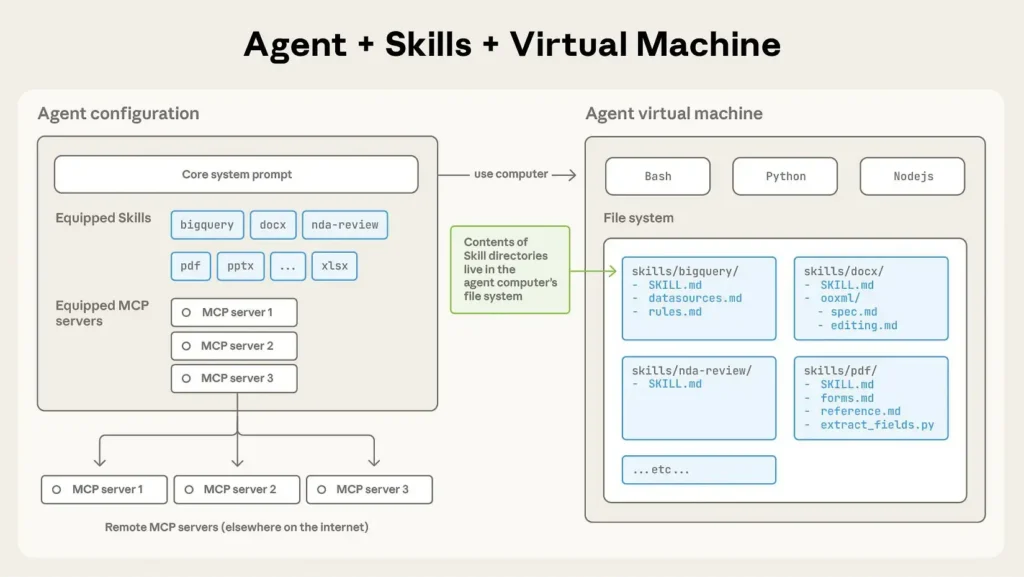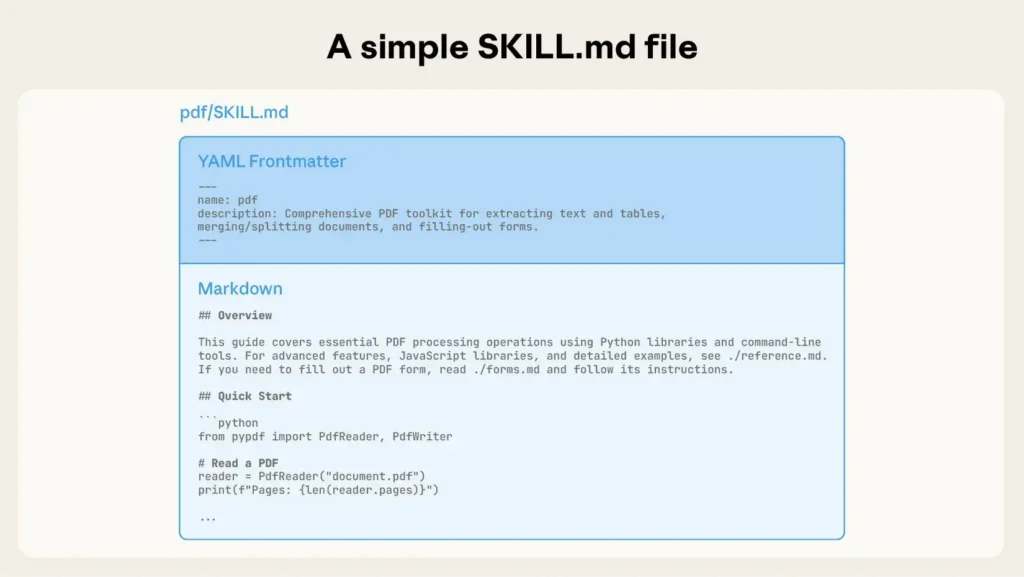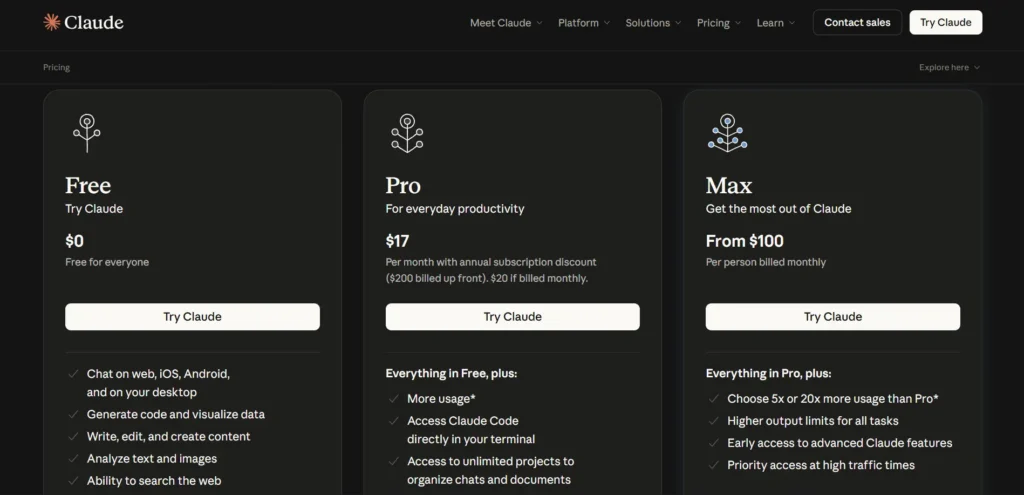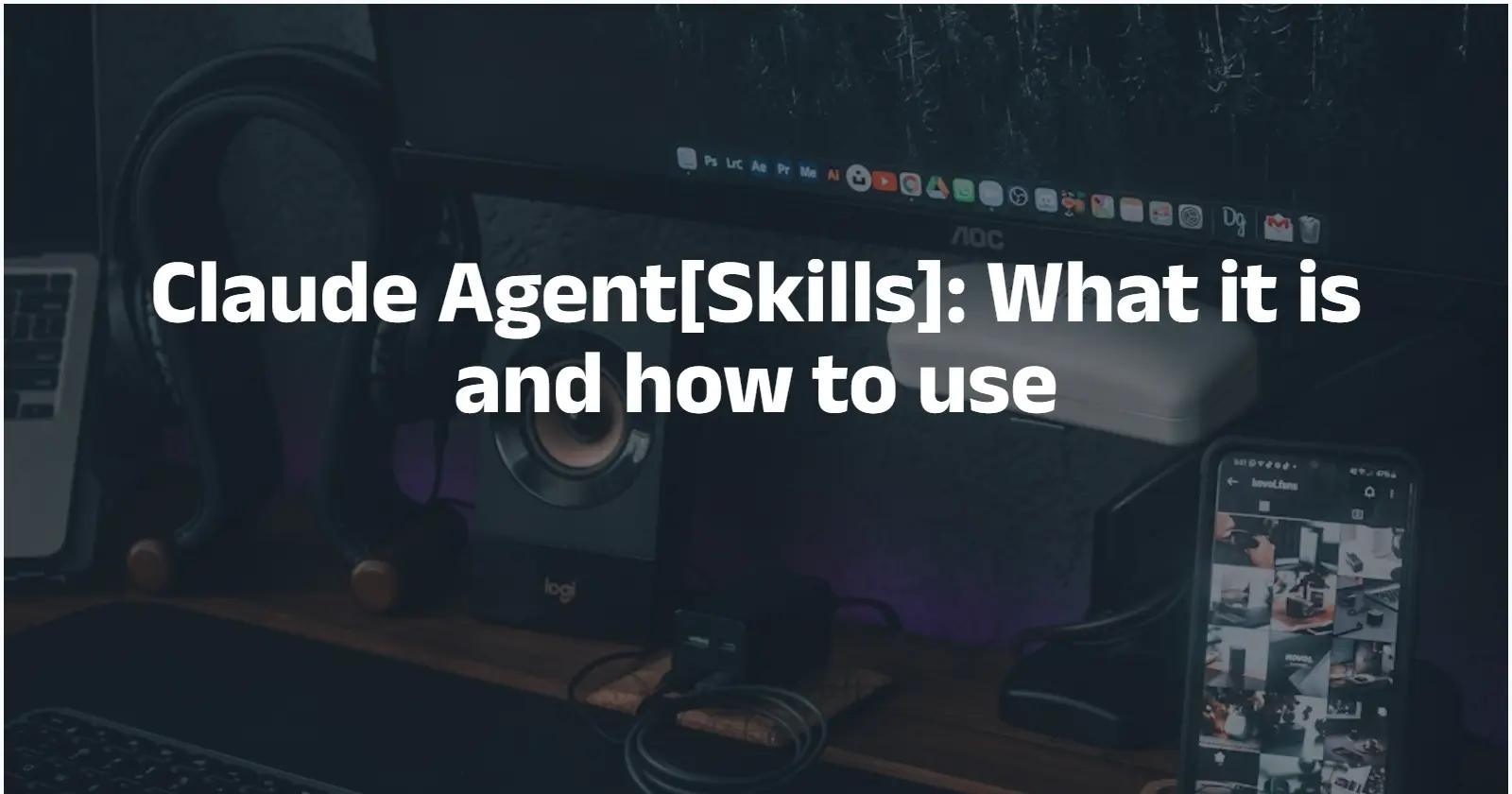Anthropic’s Claude Skills (announced October 16, 2025) mark a practical step toward making AI agents genuinely useful inside organizations — not just clever chatbots, but composable, discoverable capabilities that Claude can load on demand to perform specialized tasks. This article explains what Claude Skills are, how they’re built and invoked, who can use them, pricing and accessibility, concrete how-to guidance, security considerations, and how Claude Skills fit into the broader agent landscape. The goal is to give product managers, engineers, and power users a single, practical reference for getting started and deciding whether Claude Skills are right for your workflows.
What are Claude Skills and why do they matter?
Short answer: Claude Skills are modular packages — folders of instructions, scripts, templates, and resources — that Claude dynamically loads when it determines they are relevant to a user’s request. Claude Skills let teams encode repeatable procedures (brand rules, spreadsheet workflows, compliance checks, document templates, etc.) so Claude performs those tasks more reliably and with organizational context.
Why this matters: prior to Skills, teams either relied on long system prompts or bespoke engineering to get consistent agent outputs. Claude Skills turn that ad-hoc process into a reproducible artifact: a discoverable capability that’s portable across Claude web apps, Claude Code, and Anthropic’s API/Agent SDKs. That makes agent behavior more auditable, reusable, and easier to govern — especially for enterprises that need predictable output and procedural correctness.
Features of Skills:
- Modularity & packaging: Each Skill is a folder containing a
SKILL.md(the human / machine-readable instructions), optional scripts, templates, example files, and resources the Skill needs. Claude reads the SKILL.md when deciding whether to use the Skill. - Model-invoked activation: Skills are model-invoked — Claude autonomously decides to load a relevant Skill when it thinks the user’s request requires it (different from explicit slash commands).
- Cross-surface portability: The same Skill format works across Claude.ai, Claude Code, and the Claude API / Agent SDK, enabling consistent behavior everywhere.
- Executable components: Claude Skills can include scripts and (where enabled) use the Code Execution Tool to run code, transform files, or call internal tools — making them actionable, not just instructive. Anthropic warns that executable Skills should be trusted and governed.
- Discoverability & composition: Claude Skills can be discoverable within an organization and composed together (Claude can use multiple Skills in a single session to perform multi-step workflows).
How Skills Work
Anatomy of a Skill
A Skill is essentially a directory containing, A typical Skill is organized like a small project:
- Metadata / manifest (optional) — fields that describe versioning, authorship, access controls, and compatibility (useful for teams and CI). Anthropic’s reference repos provide examples and recommended layouts.
SKILL.md— the core instruction file Claude reads to understand the Skill’s purpose, constraints, and invocation cues. Think of it as the authoritative guide and “system prompt” for that capability.- Supporting scripts — Any supporting files — templates, sample datasets, brand assets, or policy documents — are stored alongside the Skill and referenced by Claude at runtime. Because assets live with the Skill, Claude can apply a consistent, versioned rule set rather than relying on the ephemeral context of one chat.
- Templates & sample assets — PowerPoint templates, example spreadsheets, legal boilerplate, or design tokens that the Skill applies or uses as inputs.

It consists of three levels – an information structure called Progressive Disclosure:
| Level | Content | Claude’s Behavior |
|---|---|---|
| Level 1 | YAML header (Frontmatter) including the skill name and description | Claude preloads this metadata at startup to determine when to invoke the skill |
| Level 2 | Main content (skill description, usage logic) | When Claude detects that a skill is relevant, it loads the complete content |
| Level 3+ | Attached files (reference.md, forms.md, scripts, etc.) | Claude reads these files as needed when performing specific tasks |

How is a Skill discovered and invoked?
Claude inspects the user request, matches intent and context against Skill descriptions (the SKILL.md and metadata), and decides whether bringing a Skill into the conversation will improve output. When a Skill is used, Claude will explain — in its response — that it invoked a Skill and why, improving transparency. This implicit, model-driven invocation is a core design choice: it reduces user friction (no need to memorize slash commands) and enables the assistant to chain multiple Skills when needed.
How is a Skill invoked and executed?
At a high level the flow looks like:
- User request — a person asks Claude to perform a job (e.g., “Generate a quarterly marketing deck that follows Company Brand X rules”).
- Skill selection — Claude evaluates whether any installed Skills match the task and picks the best candidate(s). It can justify the choice in the reply.
- Runtime execution — if the Skill contains code, Claude calls the Skill’s code inside the secure Code Execution Tool (a sandboxed runtime). If the Skill is purely instructional, Claude loads the Skill assets and applies them in generation.
- Response & audit trail — the result is returned to the user; administrators can inspect which Skill version ran and what code executed for compliance and debugging.
How do you create a Skill?
Can non-developers create Skills?
Yes. Anthropic’s design intentionally supports both non-technical authors and developers:
- Non-technical flow: create a Skill.md with clear instructions, examples, and templates, zip the folder, and upload via the Claude Console. No code required to get many utility Skills working (e.g., formatting reports, applying brand voice).
- Developer flow: include scripts, connect to internal APIs, use the Code Execution tool, and manage Skills programmatically through the API. This enables automation—e.g., calling internal data stores, running a formula builder for Excel, or generating charts.
Step-by-step (practical)
- Define the scope — what task should the Skill perform, what inputs it expects, and what outputs it’s allowed to produce. (Start narrow.)
- Author Skill.md — write the skill instructions, constraints, examples and templates. Include edge-case guidance and failure modes.
- Add metadata/YAML — name, description, version, triggers, and any privacy/permission settings.
- Include assets (logos, templates) and optional scripts for heavy lifting. Ensure any code meets your security review.
- Package and upload to the Claude Console or register it via the API
/skillsendpoint. Run tests included in the folder. - Test and iterate — exercise the Skill with real queries, watch the “thinking trace” (debug info), fix gaps, and bump the version.
Example folder structure (illustrative)
my-brand-press-release-skill/
├─ SKILL.md
├─ metadata.yaml
├─ templates/
│ └─ press_release_template.docx
├─ assets/
│ └─ logo.png
├─ scripts/
│ └─ validate_dates.py
└─ tests/
└─ test_inputs.json
This pattern keeps the Skill modular and reviewable.
How much do Skills cost and who can access them?
Which tiers include Skills?
Anthropic has positioned Skills as broadly available across its paid product tiers while making some pre-built Skills accessible to free users via claude.ai. As of October 2025:
- Pre-built Skills for common file tasks (PowerPoint, Excel, Word, PDF) are available to all users on claude.ai and via the API.
- Custom Skills and advanced features (console versioning, code execution, team sharing) are generally part of Pro, Max, Team and Enterprise offerings. Coverage and limits differ by plan—check the Claude pricing page and your Enterprise agreement for exact quotas and rate limits.

How do model choices affect cost?
Anthropic’s product stack includes high-power models (Sonnet 4.5 / Opus) and lighter, cheaper models (Haiku 4.5). Organizations can route routine Skill runs to Haiku 4.5 (faster, cheaper) and reserve Sonnet/Opus for complex agent work—this hybrid approach reduces cost without sacrificing capability.
How do you operationalize Skills in a team setting?
What does a rollout look like?
- Pilot a narrowly scoped Skill with a single team and defined success metrics.
- Build tests and monitoring — define unit tests, sample inputs, and expected outputs. Use the thinking trace to audit behavior.
- Integrate with tools — add Skill invocation into Slack, CRM, or internal dashboards where appropriate.
- Train users and document — include runbooks for when to trust automated outputs and when human review is required.
- Govern and iterate — enforce approvals for production Skill changes and keep a changelog.
Example use cases
- Marketing: generate campaign briefs and localized press releases adhering to brand voice.
- Finance / Ops: auto-generate Excel reports with formulas and reconciliations from uploaded CSVs.
- Legal: pre-fill templates and flag missing clauses; human lawyers review final outputs.
- Dev productivity: agentic code helpers that run tests, build scaffolding, and summarize PRs (using Sonnet 4.5 where deeper reasoning is needed).
Conclusion
Claude Skills transform ad-hoc prompt engineering into disciplined, reusable artifacts — packages of domain knowledge, templates, and executable helpers that Claude loads intelligently to produce consistent, contextually accurate outputs. For teams that need predictable results, repeatable workflows, and governance, Claude Skills lower the friction of adopting agentic automation. They do require investment (design, testing, governance), and executable Skills increase security demands — but the payoff is a more reliable, auditable, and integrated AI assistant that can be deployed across web, code, and API surfaces.
How to Use Claude skills via CometAPI
CometAPI provides access to Claude code and Claude API. You can use skills in CometAPI’s Claude code and consult documentation using Claude code.
Why to use claude code through CometAPI?
Top Artificial Intelligence features: Easily generate, debug and optimize code using models built specifically for developers.
- Flexible Model Selection: Our comprehensive range of models allows you to develop more seamlessly.
- Seamless Integration: APIs are always available. Integrate Claude Code directly into your existing workflow in minutes.
- Using Claude Code via CometAPI will save more costs. The Claude API provided by CometAPI is 20% off the official price and is updated with the latest model by the official. The latest model is Claude Haiku 4.5 API.
Ready to Go?→ Sign up for CometAPI today !
If you want to know more tips, guides and news on AI follow us on VK, X and Discord!
